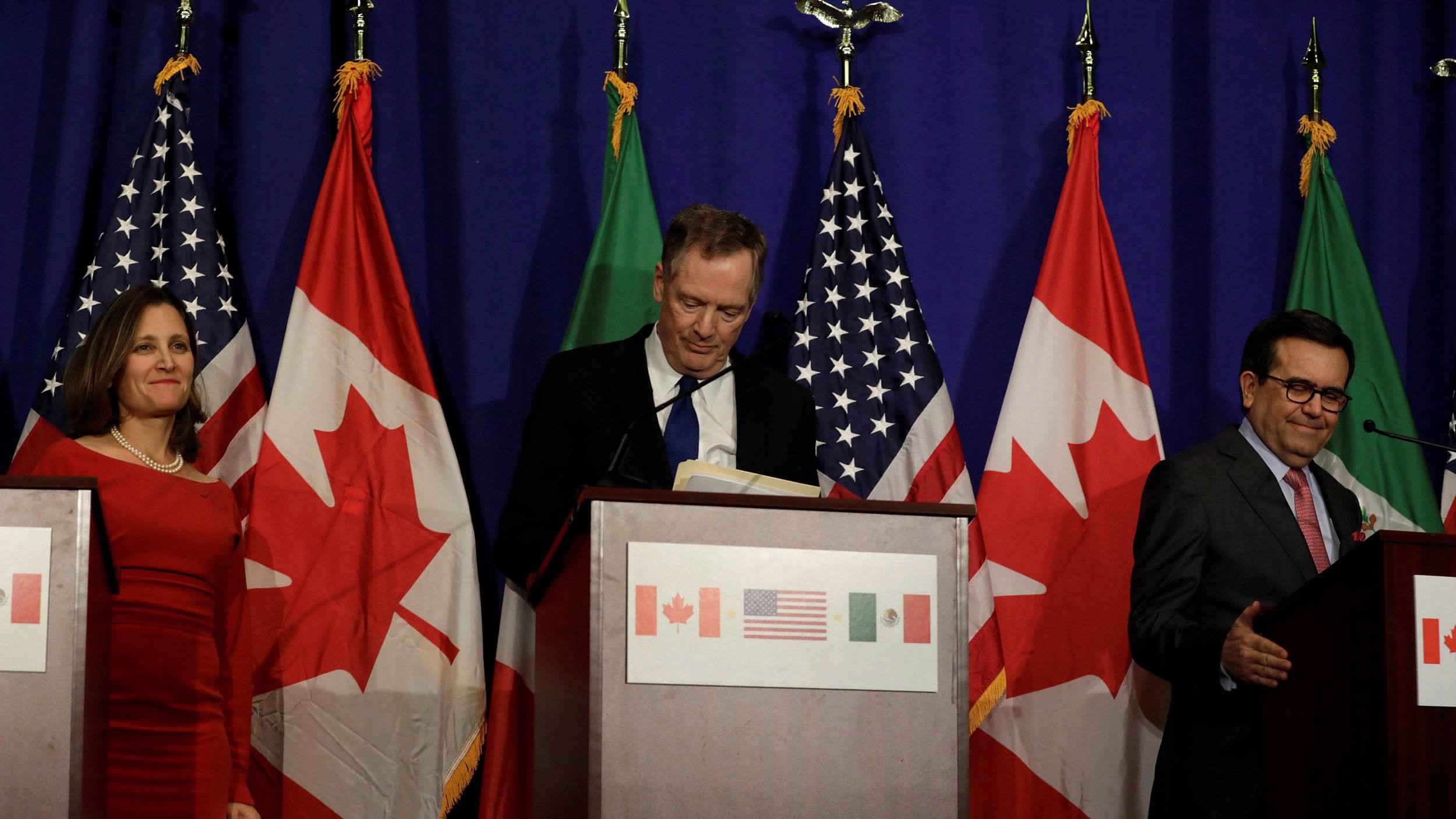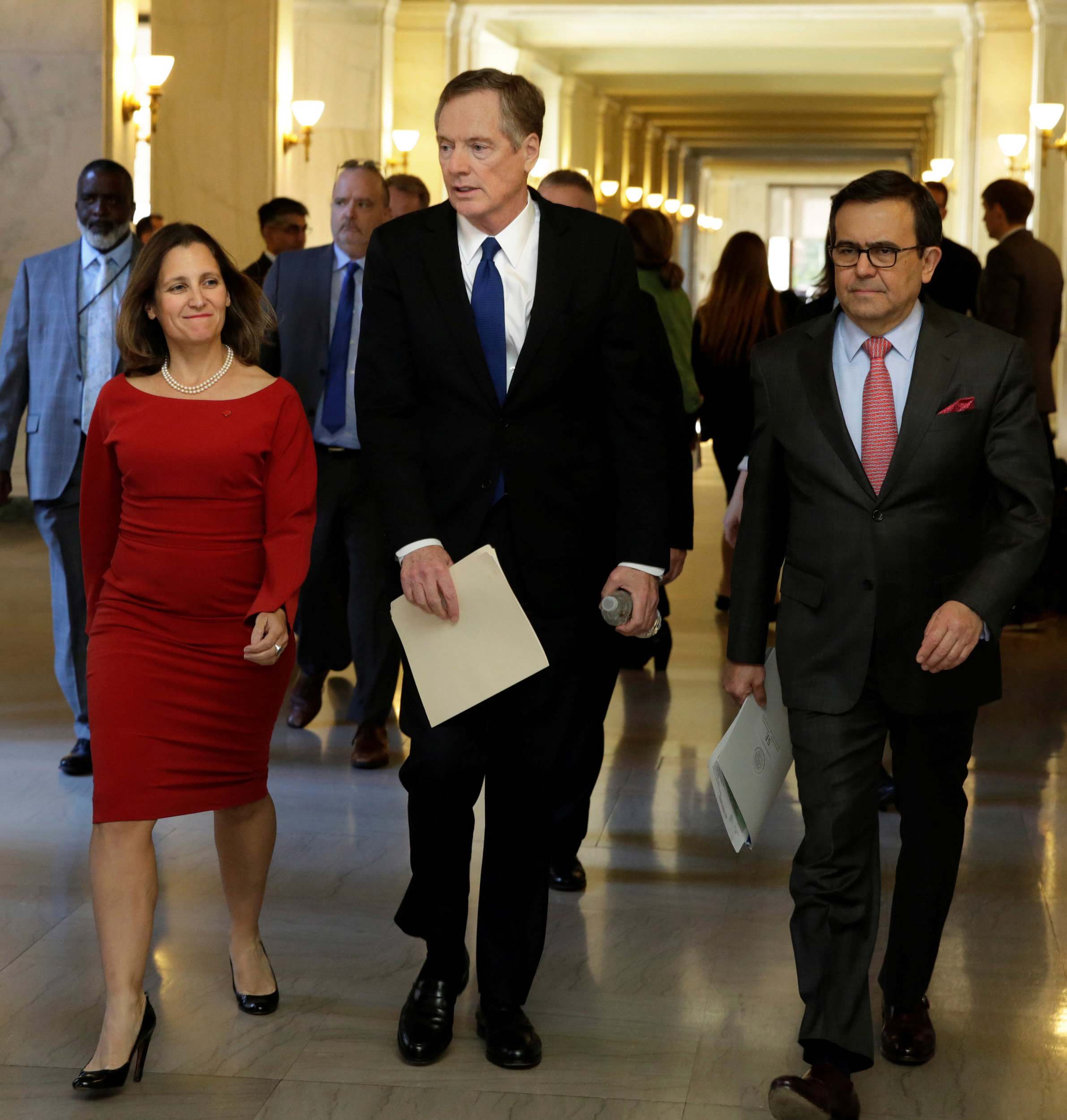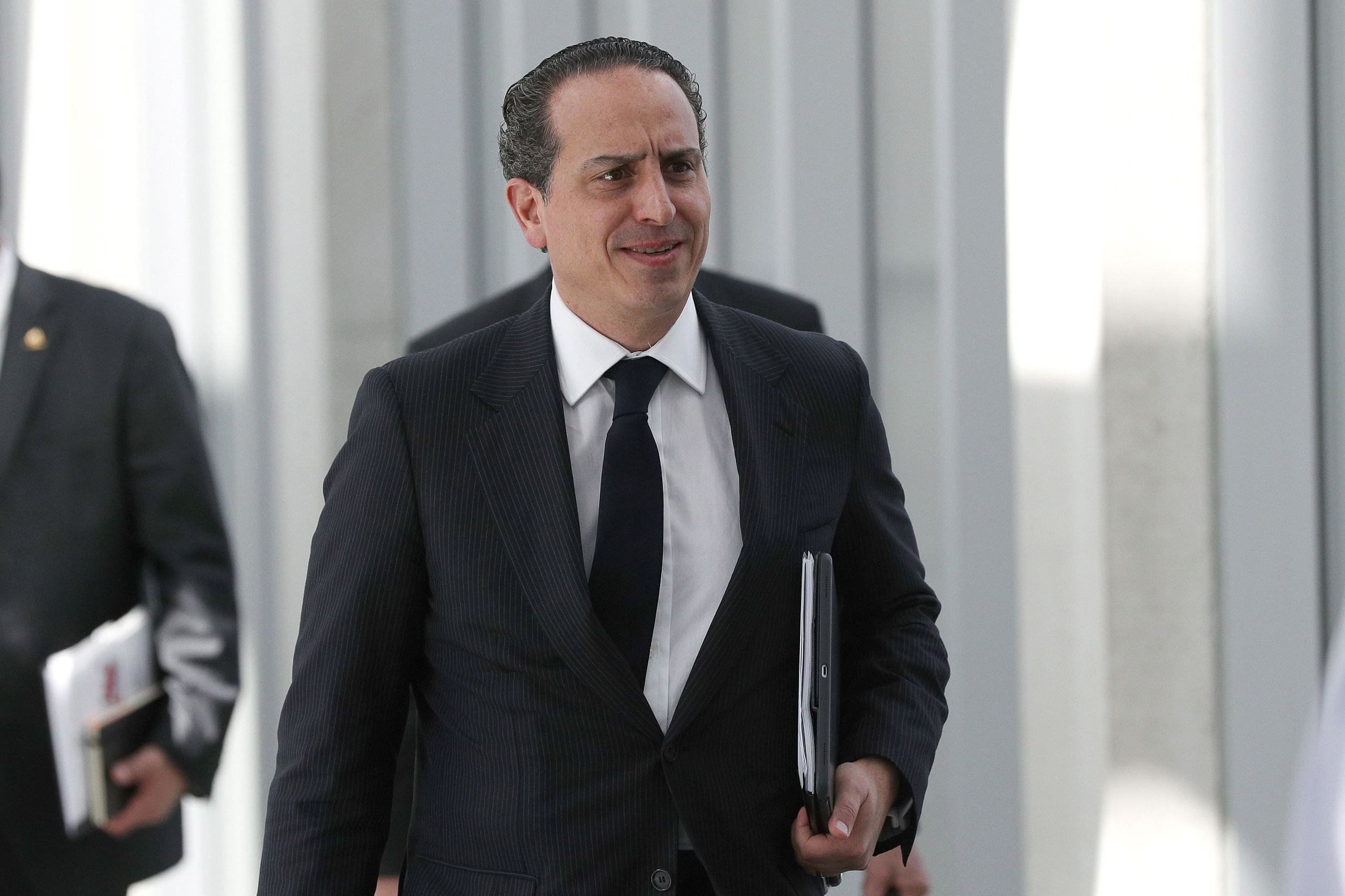
Business
08:02, 18-Oct-2017
NAFTA negotiators agree to extend talks amid disagreements
CGTN

Trade negotiators from the United States and Canada accused each other of sabotaging attempts to renegotiate the North American Free Trade Agreement (NAFTA) on Tuesday, even as they and Mexico agreed to extend talks into 2018.
A round of talks in Washington that lasted seven days failed to find the most basic common ground between the three parties, and Canadian Foreign Minister Chrystia Freeland accused the US of pursuing a “winner take all” approach.
The Trump administration’s proposals to reshape NAFTA to help shrink US trade deficits have created stumbling blocks, leaving observers to wonder whether it intends to sink the agreement.

(L-R) Canadian Foreign Affairs Minister Chrystia Freeland, US Trade Rep Robert Lighthizer and Mexican Secretary of Economy Ildefonso Guajardo Villarreal arrive at a joint news conference after a NAFTA trilateral ministerial press event in Washington, DC, US, October 17, 2017. /VCG Photo
(L-R) Canadian Foreign Affairs Minister Chrystia Freeland, US Trade Rep Robert Lighthizer and Mexican Secretary of Economy Ildefonso Guajardo Villarreal arrive at a joint news conference after a NAFTA trilateral ministerial press event in Washington, DC, US, October 17, 2017. /VCG Photo
Washington’s demands, previously identified as red lines by its neighbors, include forcing renegotiating the pact every five years, reserving the lion’s share of automotive manufacturing for the US and making it easier to pursue import barriers against some Canadian and Mexican goods.
“As difficult as this has been, we have seen no indication that our partners are willing to make any changes that will result in a rebalancing and a reduction in these huge trade deficits,” said Washington’s negotiator, Robert Lighthizer.
News of the talks' extension through to the first quarter of next year, from the end of this year, lifted the Mexican peso 1.2 percent after a volatile day of trading. The peso has fallen by 7 percent since July on expectations that NAFTA would not survive.
Mexican Economy Minister Ildefonso Guajardo struck a more positive tone than both Freeland and Lighthizer, saying the extension of the talks showed the three parties were “giving ourselves an opportunity to find a solution."
Despite the tension at the talks, Mexican and Canadian officials have stressed that their governments will not walk away from the table. The talks are now scheduled to resume in Mexico City on Nov. 17-21.
'Remain calm'
Describing some of the demands as “ridiculously extreme,” Moises Kalach, head of the international negotiating arm of Mexico’s powerful CCE business lobby, said the US government knew that it would not be able to push them through.
“The key is to remain calm and see if the American government is ready to negotiate,” he told Mexican radio.

Moises Kalach, principal representative of the Mexican private sector for the NAFTA negotiations arrives for the fourth day of NAFTA renegotiations in Ottawa, Ontario, September 26, 2017. /VCG Photo
Moises Kalach, principal representative of the Mexican private sector for the NAFTA negotiations arrives for the fourth day of NAFTA renegotiations in Ottawa, Ontario, September 26, 2017. /VCG Photo
One person close to the process said there was now a possibility that negotiations to modernize NAFTA, which underpins some 1.2 trillion dollars in annual trade between the three countries, could collapse.
Lighthizer says his hard negotiating line reflects US President Donald Trump’s desire to claw back lost manufacturing jobs and shrink US goods trade deficits amounting to 64 billion dollars with Mexico and 11 billion dollars with Canada last year.
‘Normal process'
Trump, who made trade a centerpiece of his 2016 presidential campaign as he promised to reinvigorate the US manufacturing sector, has continued his attacks on NAFTA and repeatedly threatened to terminate the pact if Mexico and Canada will not agree to changes.
US negotiators opened a new front over the weekend with a proposal that Canada dismantle its system of protections for the dairy and poultry sectors, a move that Ottawa will reject.
The Trump administration has also set out proposals that could impose fresh restrictions on long-haul trucking from Mexico, according to a person familiar with the matter. That too is likely to meet stiff resistance, Mexican officials say.
US opposition to NAFTA’s dispute resolution mechanisms, plans to restrict outside access to government contracts and attacks on Canadian dairy and softwood lumber producers are all causing friction behind the scenes, officials say.
In public, Mexican and Canadian officials have played up progress in areas of greater consensus such as telecommunications, financial services and digital trade.
Canadian and Mexican officials are loosely allied with US industry, farm and services lobbying groups that oppose the Trump proposals and are stepping up their efforts to persuade administration officials to ease them.
11159km
Source(s): Reuters

SITEMAP
Copyright © 2018 CGTN. Beijing ICP prepared NO.16065310-3
Copyright © 2018 CGTN. Beijing ICP prepared NO.16065310-3